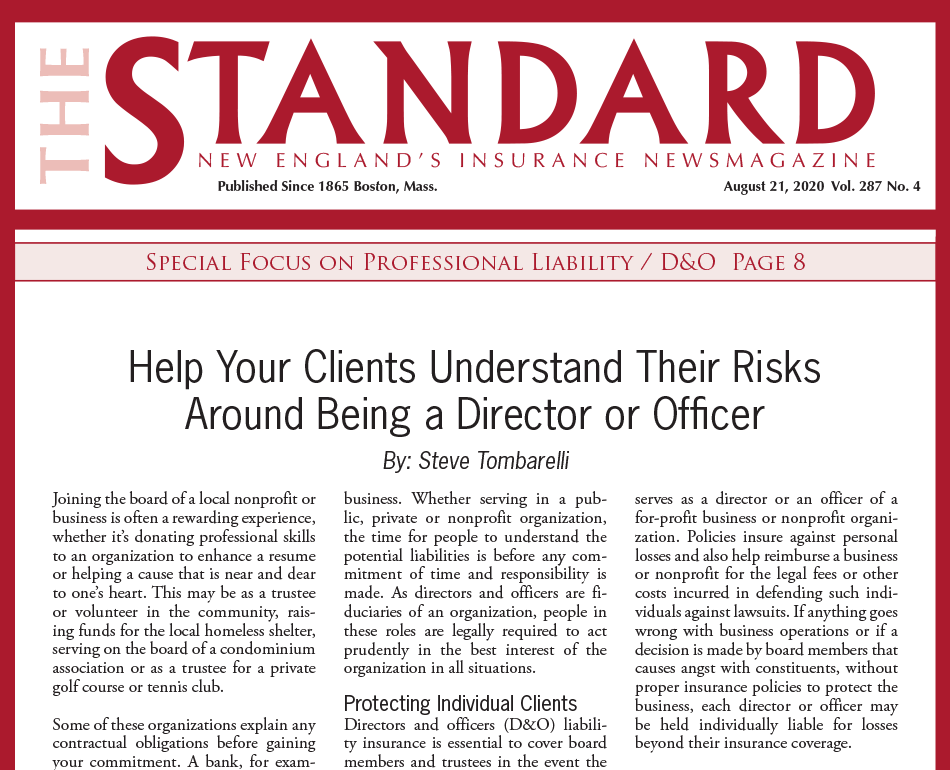Joining the board of a local nonprofit or business is often a rewarding experience, whether it’s donating professional skills to an organization to enhance a resume or helping a cause that is near and dear to one’s heart. This may be as a trustee or volunteer in the community, raising funds for the local homeless shelter, serving on the board of a condominium association or as a trustee for a private golf course or tennis club.
Some of these organizations explain any contractual obligations before gaining your commitment. A bank, for example, knows full well that its directors and officers must always be protected from the potential risks of running the business. Other organizations may add directors and officers, while not fully explaining the depth of their roles. Regardless, board members or trustees need to know the personal risks associated with these roles.
For independent insurance agents, making sure clients are protected when serving as a director or officer for any organization is a way to increase client loyalty and expand your book of business. Whether serving in a public, private or nonprofit organization, the time for people to understand the potential liabilities is before any commitment of time and responsibility is made. As directors and officers are fiduciaries of an organization, people in these roles are legally required to act prudently in the best interest of the organization in all situations.
Read the full article, written by Steve Tombarelli, Senior Vice President, Business Expansion and Innovation at SIAA, published August 21, 2020 in The Standard. Reprinted with permission from The Standard, Copyright 2020, Standard Publishing Corporation, Boston, MA. All rights reserved.
